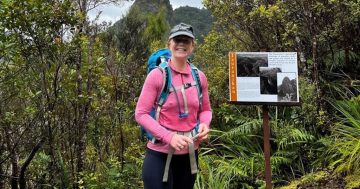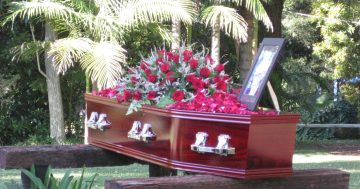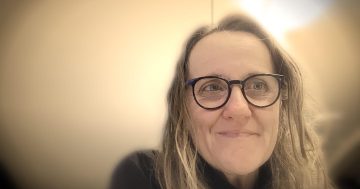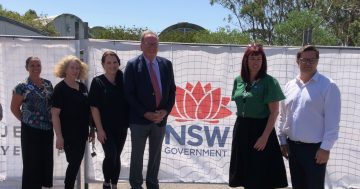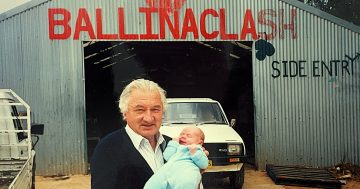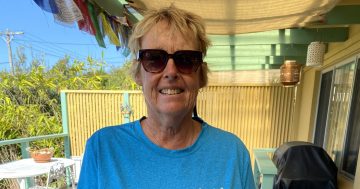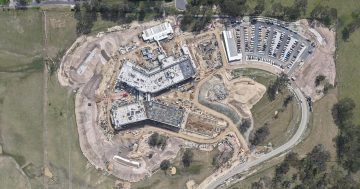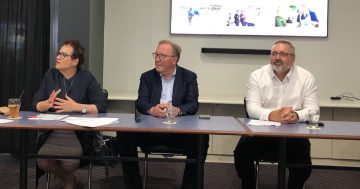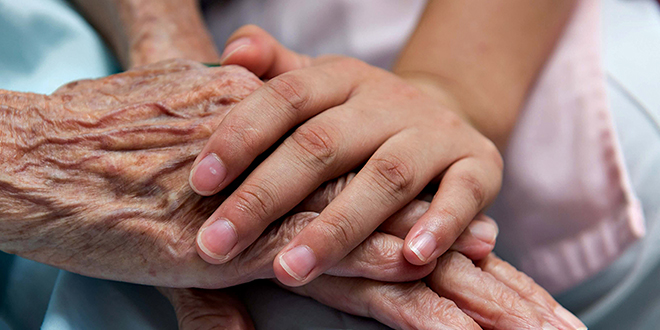
The journey towards death deserves as much care as the journey towards birth. Photo: File.
Death is still an uncomfortable discussion topic for many people despite it being the most inevitable part of life, coming to all of us without exception. So why can’t we talk about something that’s every bit as important as birth?
A new TAFE NSW Bega course has been designed to help locals open the conversation about death and also help those who are caring for the dying. It includes a one-day face-to-face ‘Death Cafe’.
The Death Cafe concept has gained traction in recent years. It’s a place where people, often strangers, gather to eat cake, drink tea and discuss death, with the objective of “increasing awareness of death with a view to helping people make the most of their (finite) lives”.
The group-directed discussion of death has no agenda, objectives or themes. It is a discussion group rather than a grief support or counselling session.
‘Midwifing Death – Life Around Death’ is a six-week short course starting on 10 May that also includes two hours a week of online learning. The course was gifted to the NSW TAFE network by retired palliative care doctor and author of the book, Caring for the Dying, Dr Michael Barbato, who ran similar courses for several decades.
Dr Barbato helped write the TAFE NSW course and said he hoped it would further empower locals to make decisions about end-of-life care for themselves and their loved ones.
“The aim is to encourage family to become more involved in caring for those living with a serious illness and not rely solely on professional care givers,” he said.
“We have found that by providing people with knowledge and skills about end-of-life care, they are more comfortable advocating for themselves or family about how and where they die.
“TAFE NSW is the ideal organisation to host this course as it will make it more accessible to people at the coalface.”
The course is designed to upskill existing workers or aspiring new entrants in direct client care to train in care-taking in the final stages of life.
TAFE Bega says the intention is not to swell the ranks of health care professionals who already care for the dying, but to train individuals who can journey with those who are dying while at the same time supporting and empowering grieving family and friends.
“We refer to these individuals as friends, companions or amici – people who are informed about and comfortable with death, and who are prepared to journey with a dying person (family member or friend) with no agenda other than to be a companion,” says the course description.
Some students have become palliative care volunteers while other course graduates have incorporated the midwifing death principles into their existing roles in volunteering, counselling, social work, nursing, pastoral care or as a funeral celebrant.
TAFE NSW head teacher of aged care Wendy Reilly, who will deliver the courses, said while the subject matter could be confronting, the course aims to arm students with practical skills and knowledge about end-of-life care.
“It’s really about opening up the conversation around death and helping someone be a friend or a carer to a person who might be at the end-of-life,” she said.
“It’s designed for anyone who might have a connection with someone who is dying, whether it be family, friends or someone who volunteers at a palliative care unit.
“The truth is we are all going to die and it’s healthy to be able to talk about it.”
Ms Reilly said the course asks students to examine their own beliefs and values around death and what is meant by a ‘good death’, as well as looking at the concept of ‘healing spaces’.
To find out more about enrolling in the course at TAFE NSW, phone 13 16 01 or visit here.







